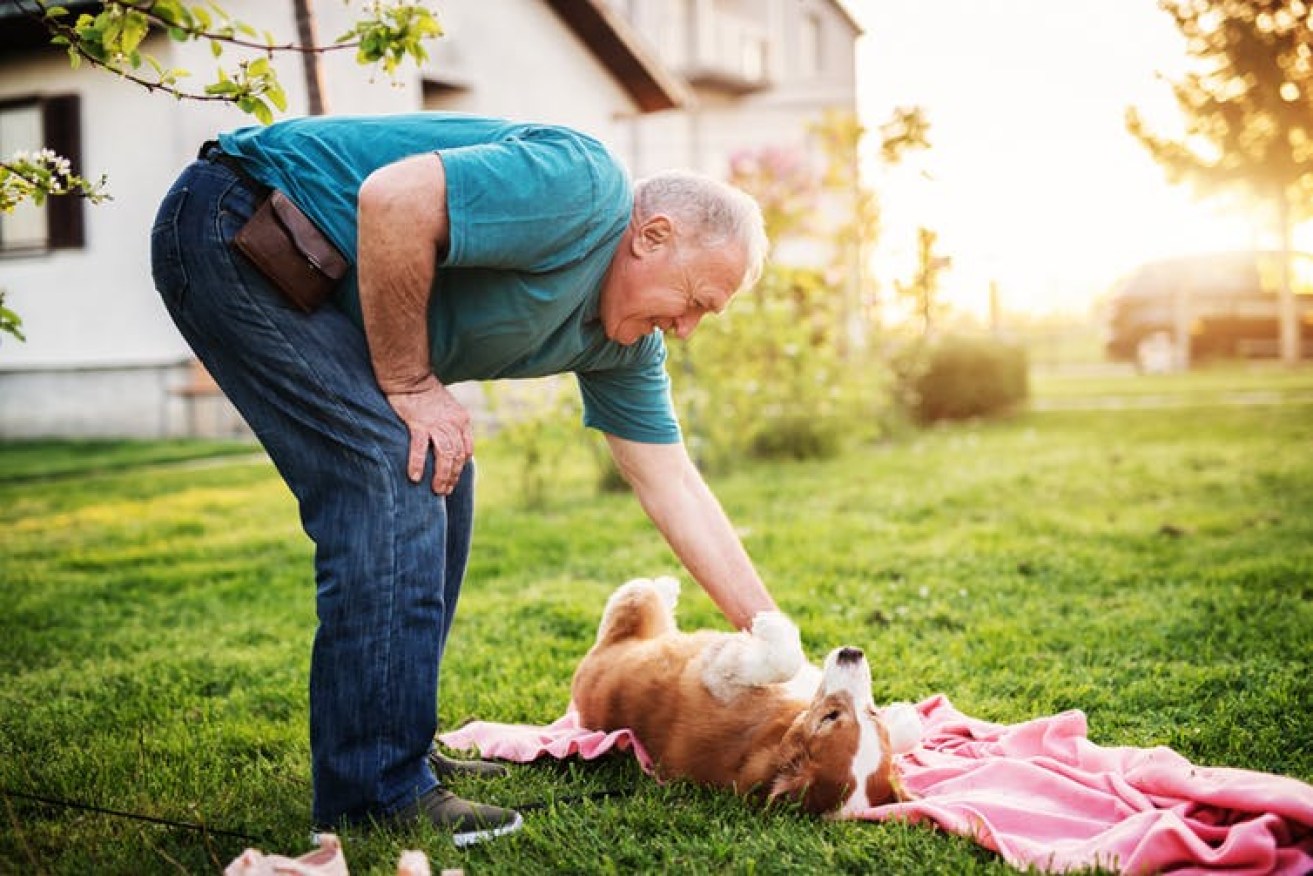Why do I grunt when I bend over?

Getting older? If you grunt when you bend over, you’re not alone. Photo: Shutterstock
You never think it’s going to happen to you.
Then suddenly you’re middle-aged and you find yourself grunting when you pick up something from the floor or groaning when you get out of the chair.
Why do we do this? Is it a sign that we’re ageing fast? Or is it just one of those things that come with the middle years, like reading glasses, greying hair and Dad jokes?
As far as I could find, there have been no specific studies to explain why otherwise healthy older people grunt or groan with the physical effort of everyday activities.
But noises relating to physical exertion are common in a range of ages and activities, as anyone who has watched cricket, boxing or in particular, tennis, will know. Think Serena Williams and Rafael Nadal.
So, we can look to the evidence of what’s behind grunting in sport or training instead.
We stiffen the body, hold our breath, then release it
When we lift something relatively heavy, make fast movements (like hitting a tennis ball), or even stand up from sitting, we stiffen our torso. This stabilises our entire body.
If we were too relaxed, we would be floppy, lose balance and risk falling over.
So we fill the lungs by breathing in and tense up the muscles of the torso to stabilise the spine.
We throw our arms forward to provide momentum and with this effort, we hold our breath to maintain that stability as we stand.
We then release the breath slowly or quickly, depending on the nature of the task.
With fast (or ballistic) movements like pitching a ball or punching in boxing, we’d release the breath quickly.
With slow movements, like lifting a barbell or getting off the couch, we’d release it slowly.
If the muscles that move the vocal cords together are activated, we make a sound.
This results in a grunt or groan of the kind you might often hear at the gym. Or at least you would if not for the deafening music.
Does grunting help us move, strike or lift?
The evidence of whether grunting helps us move, strike or lift is mixed.
According to a 20-year-old study, grunting doesn’t help weightlifters lift heavier weights. They lifted as much in a “dead lift” whether they grunted or not.
However, in a 2011 study, shouting helped martial artists grip with greater force.
And in a 2014 study, tennis players had stronger serves and forehand strokes when they were allowed to grunt compared with when they were told to be silent.
So, it seems that whether grunting or other vocalisations help you perform depends on the task.
That said, tennis great Roger Federer (a “non-grunter”) seems to perform very well without this audible shot enhancement.
What does this mean for everyday activities?
What all this means for grunting during everyday activities is unclear.
Clearly, athletes’ grunts during fast, ballistic movements are different to the noises we make when exercising in a gym or when we get up from a chair.
Perhaps we are more likely to make such noises if we are tired or fatigued.
And if someone thinks a task is going to be hard, they might be more likely to grunt or vocalise.
So that’s when they’re most likely holding their breath, to try to provide momentum and stability for the task ahead, then releasing it.
While there has been no research on this phenomenon, as far as I can tell, grunting with physical exertion does seem to be habitual.
These noises are most likely learned behaviours that we copy from friends and relatives and start doing without realising it.
So, you can choose not to groan the next time you get off the couch.
Andrew Lavender is a lecturer at Curtin University’s School of Physiotherapy and Exercise Science
This article is republished from The Conversation under a Creative Commons licence. Read the original article








